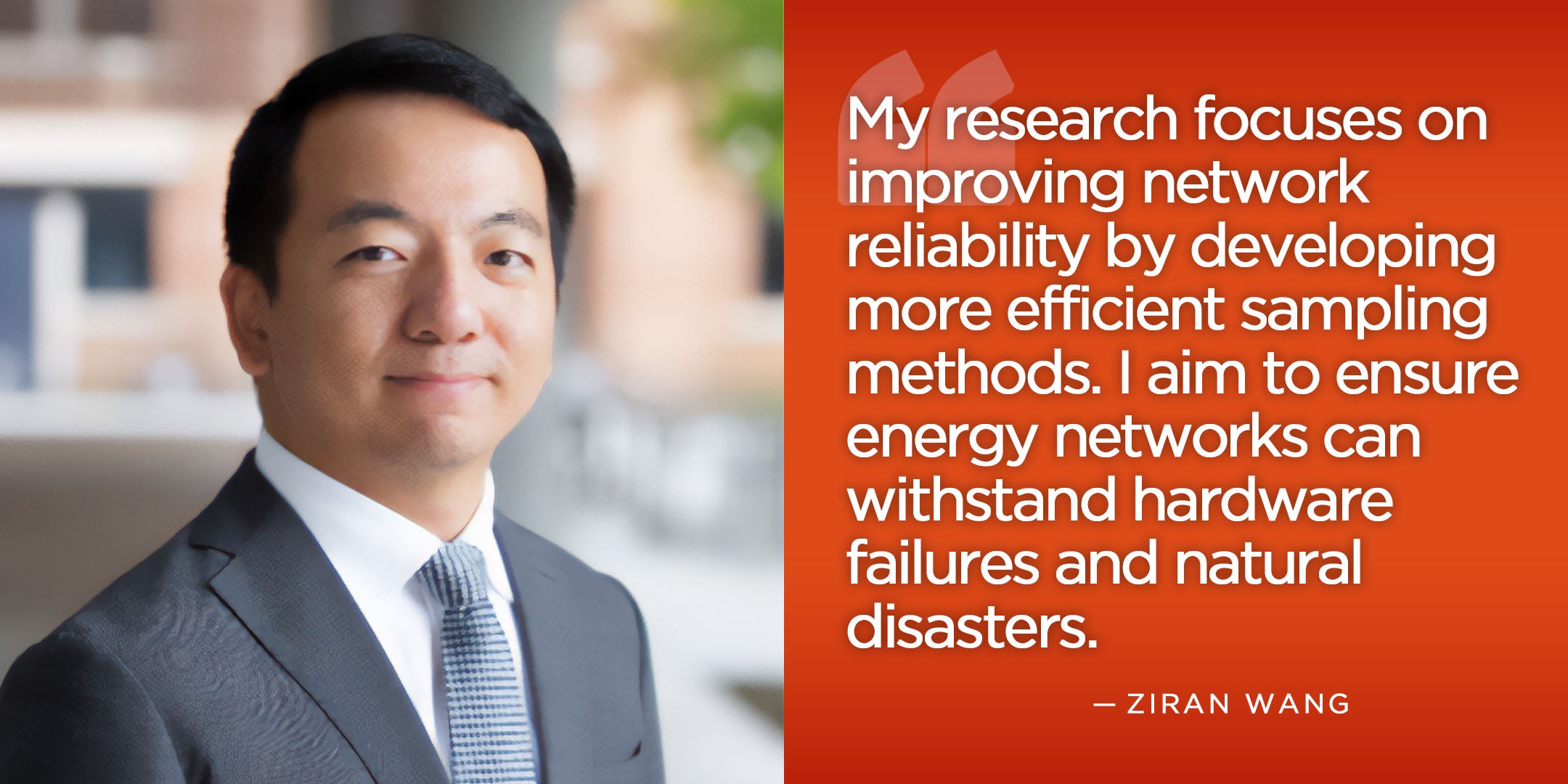Meet Ziran
- Department: Civil and Environmental Engineering
- Year in Graduate School: 2nd year
- Expected Graduation Date: May 2027
- Degree: PhD
- Hometown: Hangzhou, China
Q: What is the overall problem your thesis will help address?
A: Critical energy networks, such as oil and gas pipelines and power grids, are essential for modern society but are vulnerable to various threats, including hardware malfunctions and natural disasters. System-level reliability assessments are needed to ensure these networks can perform their intended functions. Still, existing methods for reliability computations are either inefficient or fail to capture the failure probability accurately.
Q: Can you add more scholarly depth about your thesis topic? A deeper dive into your research.
A: Sampling-based methods, such as Monte Carlo simulation, have attracted wide attention for their ability to obtain an accurate estimate of network reliability. At the same time, they are too computationally expensive for large-scale networks. My research aims to advance the state-of-the-art in sampling-based reliability estimation methods, focusing on enhancing both accuracy and efficiency.
Q: Are there any products from your work that you'd like to highlight?
A: I am working on utilizing adaptive Monte Carlo simulation for unbiased and efficient network reliability assessment. I am trying to summarize the work and may be able to present at ICOSSAR ’25.
Q: What do you see as the most pressing sustainability challenge the world is facing?
A: In the context of the energy industry, the most pressing sustainability challenge the world is facing is the transition from fossil fuels to renewable energy sources. This challenge encompasses multiple critical issues in various aspects, including power supply stabilization, economic and social transition, policy and regulatory frameworks, etc.


